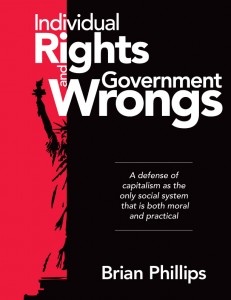Like many Americans, Chantell and Michael Sackett wanted to build their dream house. They bought a small parcel of land on Priest Lake in Idaho. Shortly after excavation began, the Environmental Protection Agency (EPA) issued a “compliance order” demanding that the couple stop construction and return the land to its natural condition. The Sacketts were threatened with fines of $32,500 per day for non-compliance. The Sacketts were not dumping toxic chemicals into the lake. They were not burning trees on neighboring property. The EPA determined that the property was considered a “wetlands,” and therefore subject to provisions of the Clean Water Act, even though the land held no standing water. Without warning or any hearings, the Sacketts were prohibited from building their dream house, and threatened with ruinous fines.
Sadly, the Sacketts are not alone. The Pacific Legal Foundation has found that the EPA has regularly issued up to three thousand “compliance orders” per year. Thousands of Americans are denied the right to use their land as they choose, not because they are violating the rights of others, but because some bureaucrat has deemed their property a “wetlands.”
The right to property is the right to own, use, keep, and dispose of material values. It is, like all rights, a sanction to act on your own judgment. It is the freedom to produce or earn the material values that life requires. The right to property is not the right to be provided an object, but the right to take the actions necessary to create or earn that object. A person does not have the right to be given a smart phone; he has the right to take the actions necessary to create one or earn the money to purchase one.
The values required to sustain and enjoy life must be created. Automobiles, I-Pads, flat screen televisions, and dream homes are not simply lying around waiting for someone to pick them up. They require thought and effort to come into being. The individual or business who exerts the thought and effort to create those values is the rightful owner. If you grow vegetables in your garden, those vegetables are rightfully yours. If you catch fish in the nearby public lake, those fish are rightfully yours.
Further, ownership means control—the freedom to use and dispose of your property as you choose. “Ownership” without control is a sham; it means that you have the responsibilities of ownership, such as maintenance and upkeep, but you cannot use or dispose of the property as you judge best. For example, the Sacketts must pay property taxes and maintain their land, but they cannot use it as they choose.
We have already seen many ways in which government regulations and controls prevent you from living according to your own judgment. Government regulations and controls also prevent you from using your property as you choose. Whether those regulations take the form of zoning, restrictions on drilling for oil, antitrust statutes, or any other government control on the use of your property, you may use your property only with the permission of government officials, rather than by right.
Restrictions on the use of property are an assault on all of your rights. “The right to life,” Ayn Rand wrote,
is the source of all rights—and the right to property is their only implementation. Without property rights, no other rights are possible. Since man has to sustain his life by his own effort, the man who has no right to the product of his effort has no means to sustain his life. The man who produces while others dispose of his product, is a slave.
If you cannot use your property, such as land, a factory, or money, as you choose, your property and your life become pawns for the desires and dictates of others.
As with all rights, only physical force can deprive you of your right to property. Only coercion can prevent you from drilling for oil, or erecting a sign, or freely spending your money, or building your dream house. Only physical force can compel you to plant the “right” kinds of trees, or use a particular architectural style, or take any other action that is contrary to your own judgment. Whether it takes the form of theft or extortion, jail or fines, only physical force (or the threat thereof) can violate your right to property.
In a social context, the recognition and protection of property rights is the only means by which to resolve conflicts and disputes. Highly politicized issues such as pollution, “incompatible” land uses, smoking, and energy policy can be addressed by recognizing and protecting the moral right of each individual to use his property as he deems best. Even issues such as discrimination and educational curriculum are removed from the political arena when property rights are recognized and respected. When individuals are free to use their property as they judge best, the owner decides whether to serve gays, whether to hire blacks, whether to teach evolution or creationism. And others are also free to patronize a business or boycott it, to associate with bigots or ostracize them.
A thief does not have the right to take your “stuff” or dictate how you use it. Neither does the government. Let us now see how the recognition and protection of property rights provides affordable housing, clean water, abundant and inexpensive energy, and “fair taxation.”
Click here to see the Table of Contents.
Click here to read the Introduction.
Click here to read the Introduction to Part 1.
Click here to read the Introduction to Part 2.
Click here to read the Introduction to Part 3.
Click here to read the Introduction to Part 4.
Individual Rights and Government Wrongs in paperback
Individual Rights and Government Wrongs
Individual Rights and Government Wrongs for ePub (Nook and iBooks)
Get the free ePub Reader here
Individual Rights and Government Wrongs in PDF
I am available for interviews, guest blogging, and speaking engagements. Click here to contact me.

